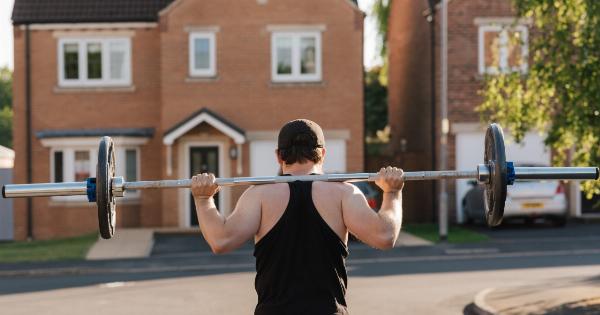Athletes require proper nutrition to fuel their bodies and to perform at their best. However, many athletes make common nutrition blunders that can hinder their performance and overall health.
In this article, we will discuss ten of the most common nutrition mistakes made by athletes and provide tips on how to avoid them.
Not Eating Enough
Many athletes make the mistake of not consuming enough calories to properly fuel their bodies. This can result in fatigue, muscle loss, and a decrease in performance.
It’s important to calculate your daily caloric needs and to fuel yourself with a balanced diet consisting of carbohydrates, proteins, and fats.
Eating Too Much Protein
While protein is an important macronutrient for athletes, many consume too much of it, thinking that more is better.
However, consuming excessive amounts of protein can actually be harmful to the body and can lead to kidney damage, dehydration, and nutrient deficiencies. The recommended daily intake for protein is around 1.2-1.7 grams per kilogram of body weight.
Skipping Meals
Skipping meals is a common mistake made by athletes who are trying to lose weight or build muscle. However, skipping meals can lead to nutrient deficiencies, a decrease in energy levels, and a slower metabolism.
Instead, aim to eat small, frequent meals throughout the day to keep your energy levels steady and your metabolism firing.
Not Hydrating Properly
Staying hydrated is critical for athletes, as even mild dehydration can lead to a decline in performance, headaches, and muscle cramps. It’s important to drink water throughout the day, especially before, during, and after exercise.
Aim to drink at least 8-10 cups of water per day and more if you’re exercising for extended periods of time.
Consuming Too Many Processed Foods
Many athletes turn to processed foods for convenience, but these foods are often high in sodium, sugar, and unhealthy fats. A diet high in processed foods can lead to weight gain, nutrient deficiencies, and an increased risk of chronic diseases.
Instead, focus on consuming whole, nutrient-dense foods like fruits, vegetables, lean proteins, and whole grains.
Not Consuming Enough Carbohydrates
Carbohydrates are the body’s primary source of energy, but many athletes fail to consume enough of them, thinking that carbs are bad for them.
However, consuming adequate amounts of carbs is critical for optimal performance, as they provide energy for workouts and aid in recovery. Aim to consume around 3-5 grams of carbohydrates per kilogram of body weight per day.
Skipping Post-Workout Nutrition
After a workout, the body needs nutrients to repair and rebuild muscle tissue. Many athletes skip post-workout nutrition, thinking that it’s not important or they’re trying to lose weight.
However, consuming a combination of carbohydrates and protein after a workout is critical for muscle recovery and growth.
Not Consuming Enough Healthy Fats
Fats are an important macronutrient for athletes, as they help the body absorb vitamins and minerals, provide energy, and support brain function. Many athletes avoid healthy fats, thinking that they’ll make them gain weight.
However, healthy fats like olive oil, avocados, and nuts are beneficial for overall health and performance.
Ignoring Nutrient Timing
The timing of nutrient intake is just as important as the type of nutrients consumed. Many athletes don’t pay attention to nutrient timing, which can result in decreased performance and recovery.
It’s important to consume carbohydrates before, during, and after exercise and to consume protein after a workout to aid in muscle recovery.
Overcomplicating Nutrition
Many athletes overcomplicate nutrition, thinking that they need to follow a strict diet plan and consume certain supplements to perform at their best. However, proper nutrition doesn’t have to be complicated.
Stick to consuming a balanced diet consisting of whole, nutrient-dense foods and prioritize hydration.































